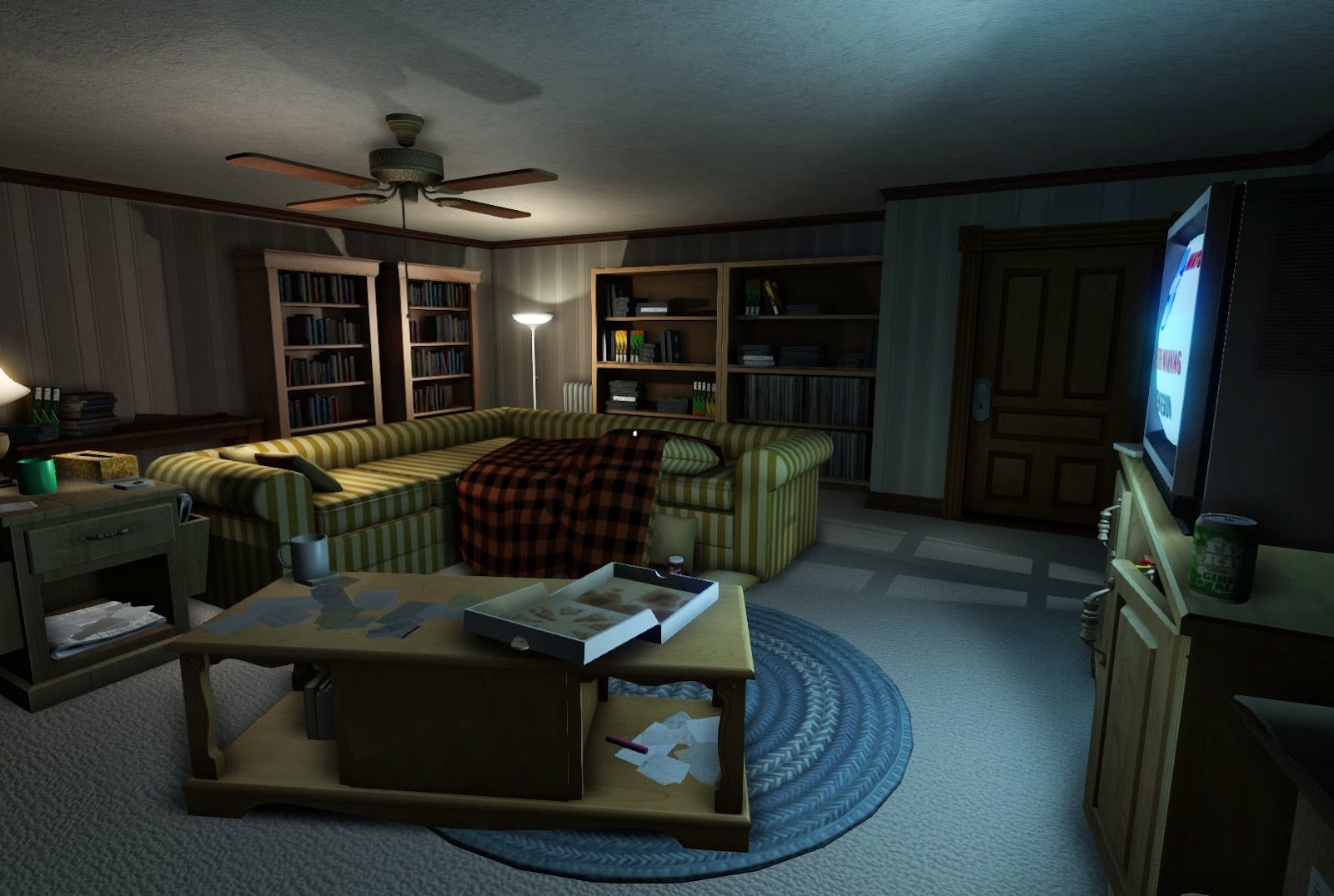 Opinion by Matt S.
Opinion by Matt S.
For some reason the debate over whether Gone Home is a game or not is the debate that just won’t die. Every couple of weeks I see the debate flare up on Twitter and the like, and I’m constantly baffled. And now on Steam using the new user tagging ability, a bunch of people have decided to tag Gone Home as a non-game.
It baffles me because I can’t think of a single set of criteria that would disqualify Gone Home from being a game, and I’ve not seen a convincing argument to enlighten me otherwise. Let’s start be defining what makes a game. The best series of criteria on offer are probably those of sociologist and philosopher, Roger Caillois, who defined seven parameters that form the basis of a game, and all of which are criteria that Gone Home meets;
– It must be fun: the activity is chosen for its light-hearted character
Now some would argue that Gone Home is not “fun” – in that they’re not entertained. This is not the objective definition of fun. Caillois was using the term to separate games from education or work resources. i.e. You’re not going to learn maths or end up with the design for a building by loading up Gone Home on your computer. Its purpose, whether it entertains you personally or not, is for recreation.
– Separate: it is circumscribed in time and place uncertain
This simply means it takes place outside of the “real world,” which Gone Home assuredly is.
– The outcome of the activity is unforeseeable
Yep. You go into Gone Home not sure what’s going to happen as you play it.
– Non-productive: participation does not accomplish anything useful
This is also true; as I mentioned above you’re not going to learn the philosophies of Karl Marx playing Gone Home. Nor are you going to finally get around to building that dog house while you’re clicking around and exploring the home of Gone Home.
– Governed by rules: the activity has rules that are different from everyday life
Gone Home takes place within a clearly prescribed set of rules. You can’t set fire to the house, for instance, because the game won’t let you – it’s outside of the rules.
– Fictitious: it is accompanied by the awareness of a different reality
This is also true of Gone Home. The game takes place in an environment that is entirely fictional.
So by the most comprehensive philosophical criteria for defining something as a game, Gone Home fits neatly into what should by rights be considered a game.
And yet, that’s not what has happened. A large group of people, including published critics, argue that Gone Home is not a game at all.
The question I’ve been asking myself in this context has been “why?” Why do people insist that Gone Home (and other games like The Stanley Parable) are not games? What arbitrary set of rules have they come up with that could possibly exclude these games, and yet still, one presumes, include all of their favourite titles as games?
Here’s a couple of the common ones, and why I feel such claims are ridiculous:
– “It’s boring”
Well, I’m sorry, but you’re not the supreme arbiter of entertainment in the universe, so you don’t get to determine what is and isn’t a game based on your idea of what is fun. I’m sure some people do dismiss Gone Home as a non-game solely for this reason, but, frankly, it’s an opinion that’s not worth respecting.
– “It’s linear”
All games with a narrative are linear. You might do a billion side quests in Assassin’s Creed, but the game is going to finish with the same cut scene. Games with multiple endings simply have multiple linear narratives within the one product.
Further, games like Call of Duty, Battlefield, Uncharted, The Last Of Us, Tomb Raider, and so on are, if anything, more linear than Gone Home. Gone Home leaves the exploration up to the player, and that means that the narrative reveals are on the player’s terms. These games I’ve mentioned above simply point the player in a single direction and give them two options “stand still and do nothing” or “move down the corridor to the next firefight/ cut scene.” Those games are the very definition of linear, and one presumes that the people claiming Gone Home is not a game are not about to claim The Last Of Us is not a game.
So if anyone does believe that linearity does exclude Gone Home from being a game, then there are very few videogames indeed that get to be games at all. If you’re going to hold all games to the same criteria, that is.
– “It’s not interactive”
I’ve seen this argument used quite a few times, and it frustrates me greatly. Even if someone could establish that Gone Home isn’t a game, it’s still interactive. Films and books are interactive. Interactivity is by definition a conversation, be that between two humans, or a work and a human, in which one party responds to what they’re experiencing.
You’re interacting with a book as you’re reading it or a film as you’re watching it. It won’t respond to you, but you are responding to it. You’re interpreting what’s going on, you’re possibly thinking about what the film or book means. That’s why no two people have the same response to a book for film. This interactivity isn’t as complex as what you find in a typical videogame, but it’s interactivity nonetheless.
Even ignoring the literal interactivity in that if you don’t do anything in Gone Home, then your character doesn’t move, Gone Home involves a great deal of interpretation and thematic thinking as you explore the game. Which makes it interactive, just as a book or film is.
So, if you’re going to argue that Gone Home is not a game because it’s not interactive, then you’re going to need to successfully argue that a film or a book is a game because they are interactive.
There are other arguments that I’ve seen that are similarly easy to dismiss, but if I was to find a commonality between the people that do claim that Gone Home isn’t a game, it’s one of two things – they really were bored by it, or they didn’t understand it. Often the latter leads to the former.
I find it disappointing that people would have such a limited perspective on what is, and isn’t, a game. Given how many people throw a tantrum every time someone like Roger Ebert argues that games aren’t art, for the same crowd to then turn around and form exclusive and elitist expectations for what forms a game is not only hypocritical; it’s a deeply limited and unintelligent argument to make.
– Matt S.
Editor-in-Chief
Find me on Twitter: @digitallydownld






